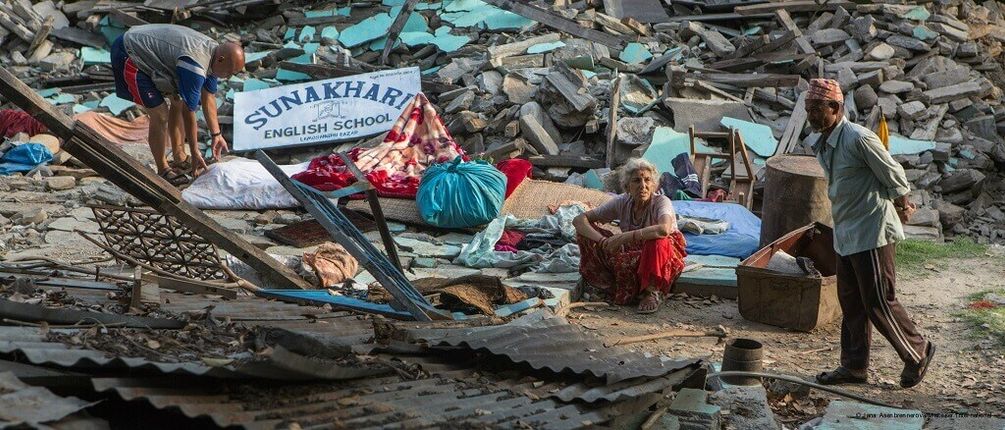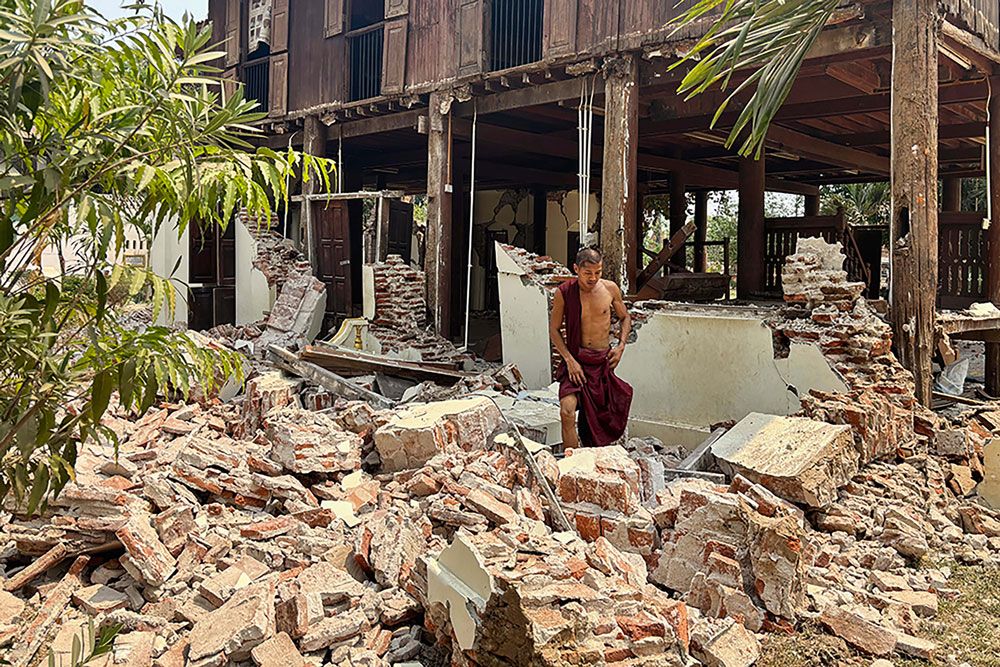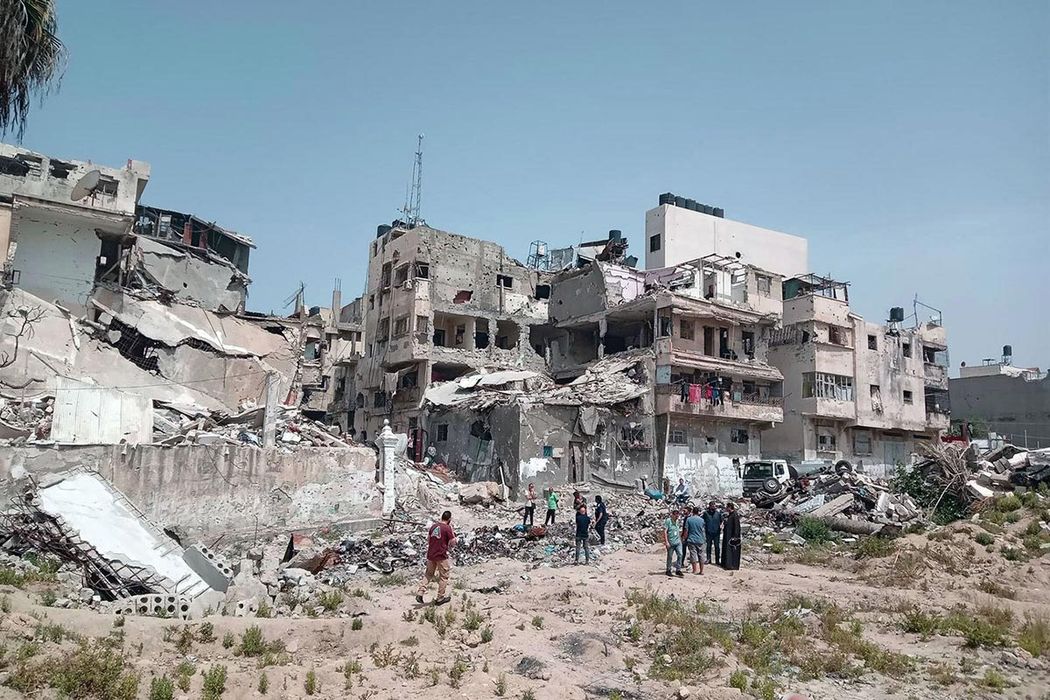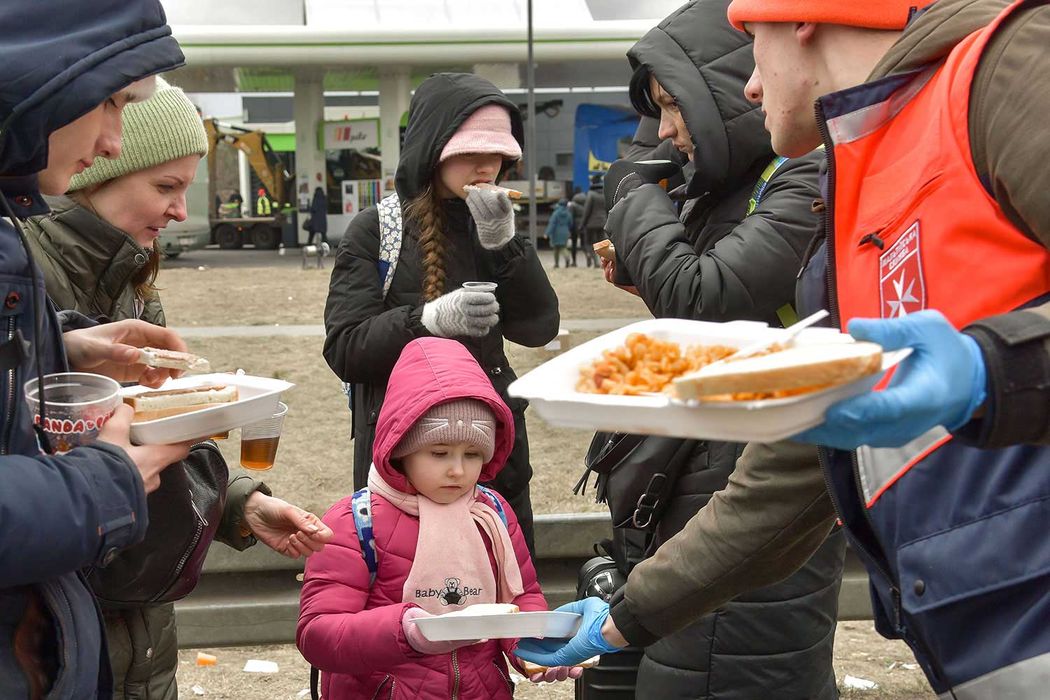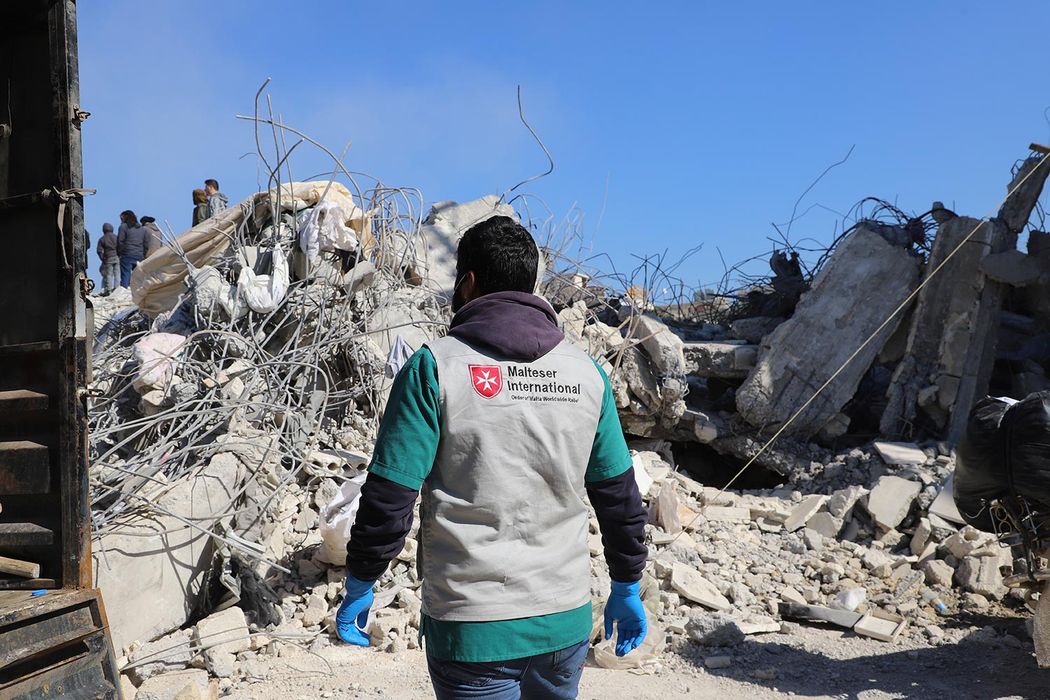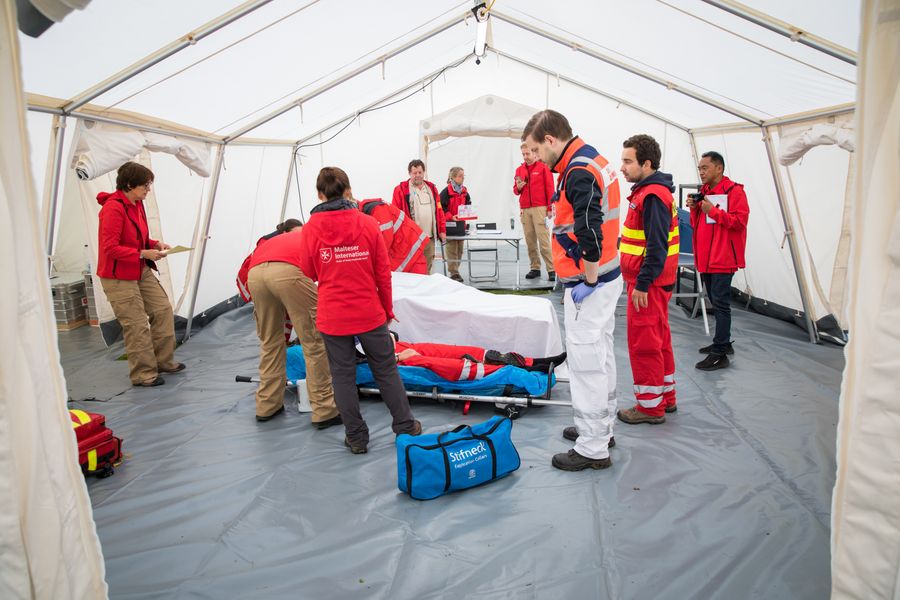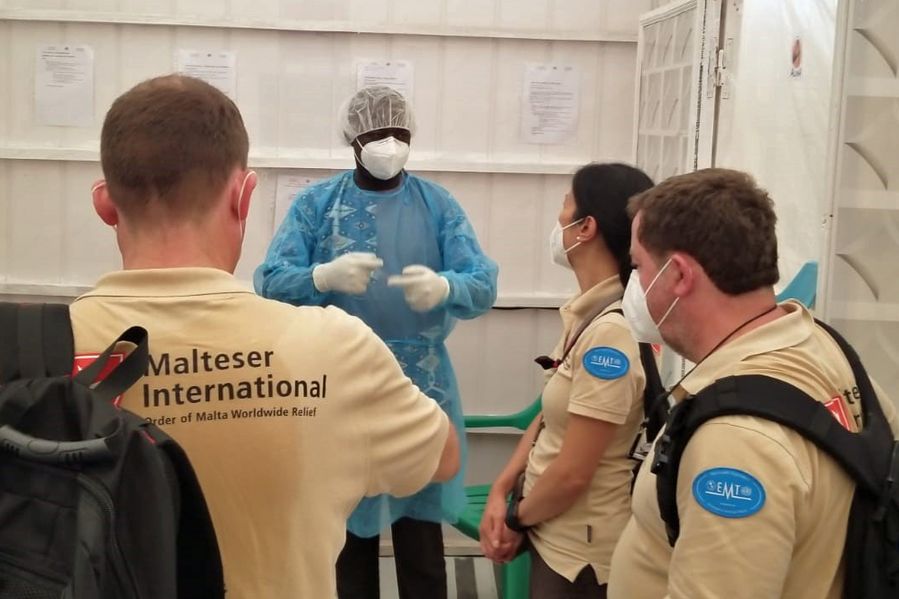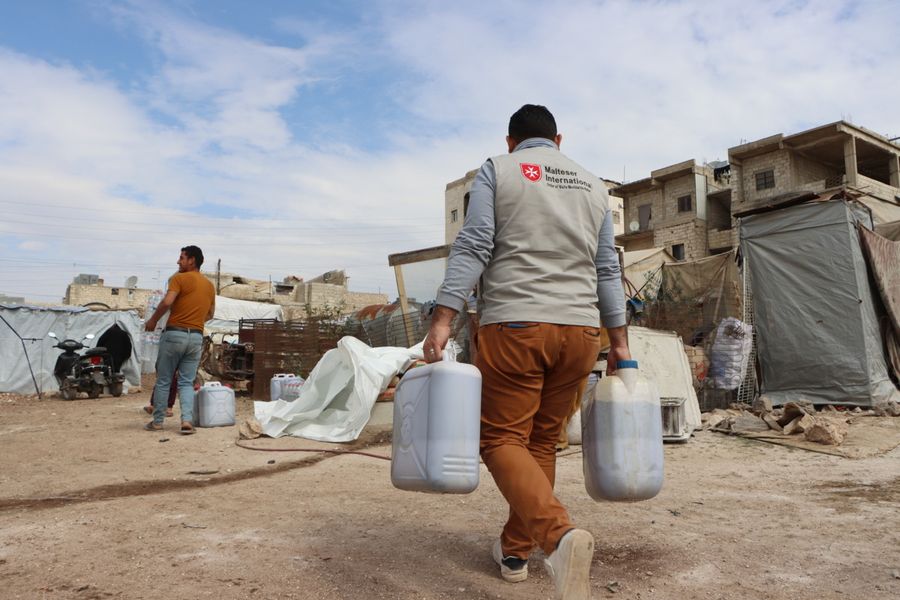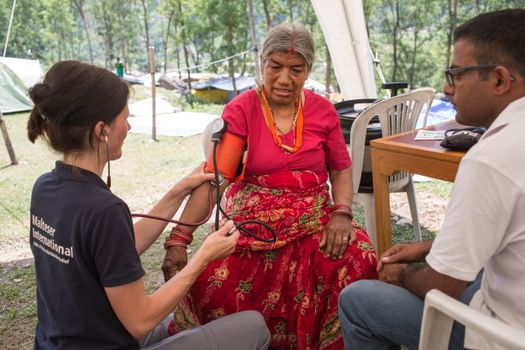Emergency Medical Teams (EMT): As a central element of our disaster relief, we have a WHO-certified Emergency Medical Team Type 1. These specialized emergency personnel can be deployed to crisis areas with a self-sufficient tent health station within a maximum of 72 hours to provide life-saving medical assistance. EMTs are specially equipped for self-sufficient operations over a period of around 14 days and provide indispensable support in the first critical days after a disaster.
Local and regional support: Our country offices on the ground play a key role in the coordination and implementation of disaster relief. In the event of local and regional emergencies, our regional teams coordinate and provide emergency relief for people in need in consultation with the HQ emergency aid team. In the event of major disasters, our HQ emergency relief team usually takes over the coordination of the disaster response in order to relieve the teams on the ground.
Strengthening local partners: We are committed to strengthening and supporting our local partner organizations so that they can provide emergency relief independently and act as recognized players in the international aid system. This has many advantages: The teams are already on the ground, know the language and cultural context of those affected in detail and can therefore implement relief measures quickly and in line with their needs. We put particular emphasis on training the actors and building the capacities and resilience of our partners.
Cooperation with global partners: In our operations, close coordination with international partners, including UN organizations, INGOs and NGOs, ensures that our aid is targeted and that no duplication of effort occurs. This cooperation with other aid organizations is essential for us to make optimal use of resources and provide the best possible help to people in need.

